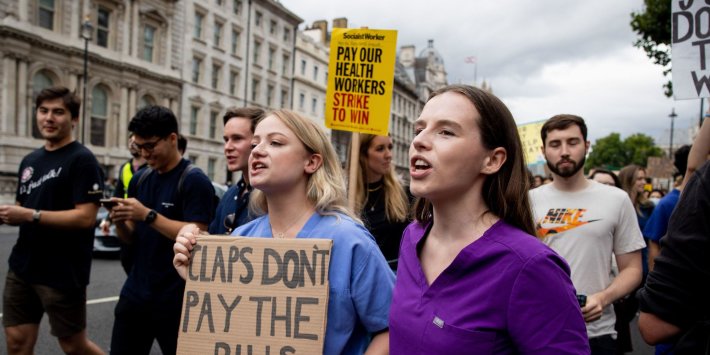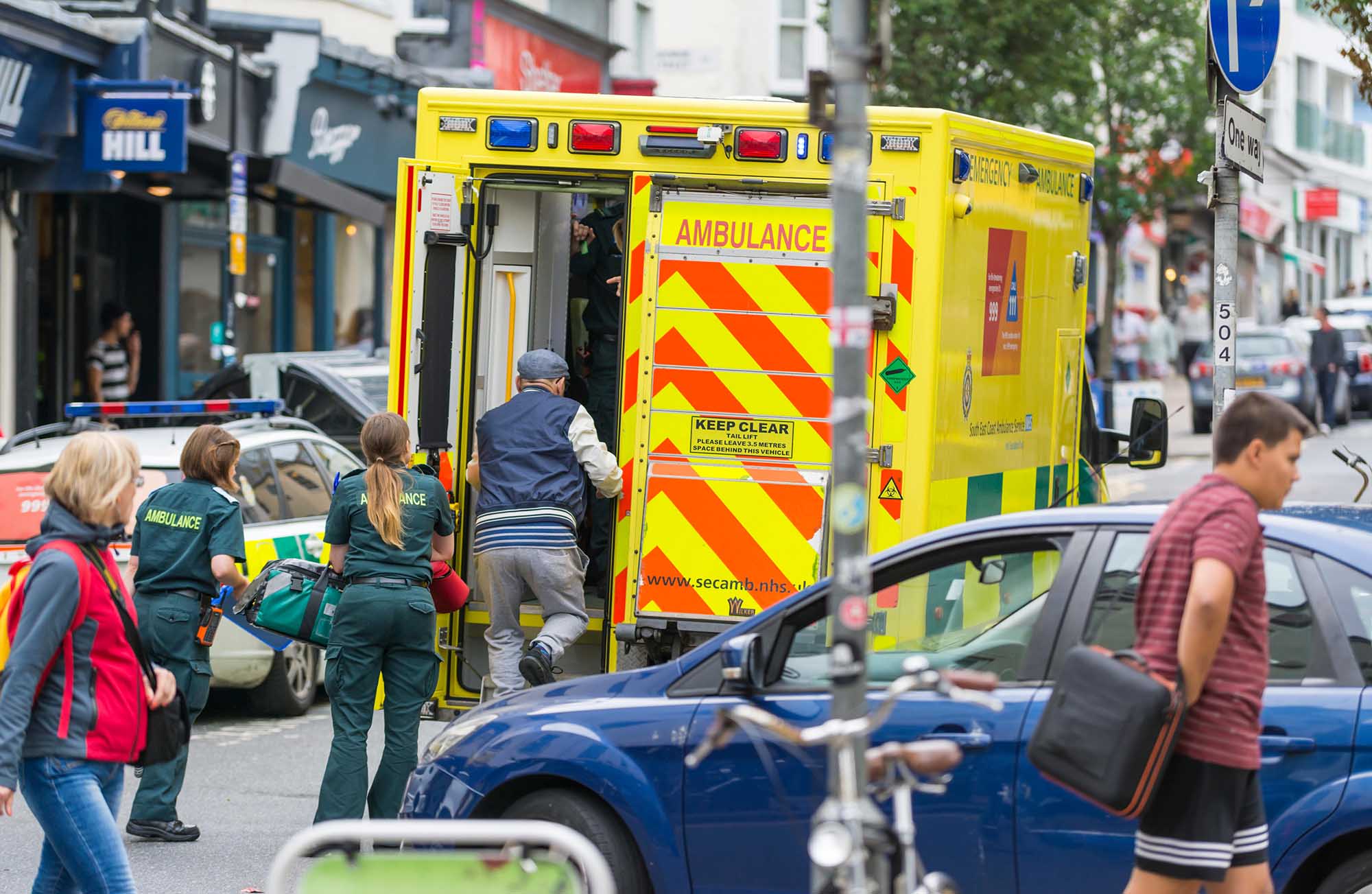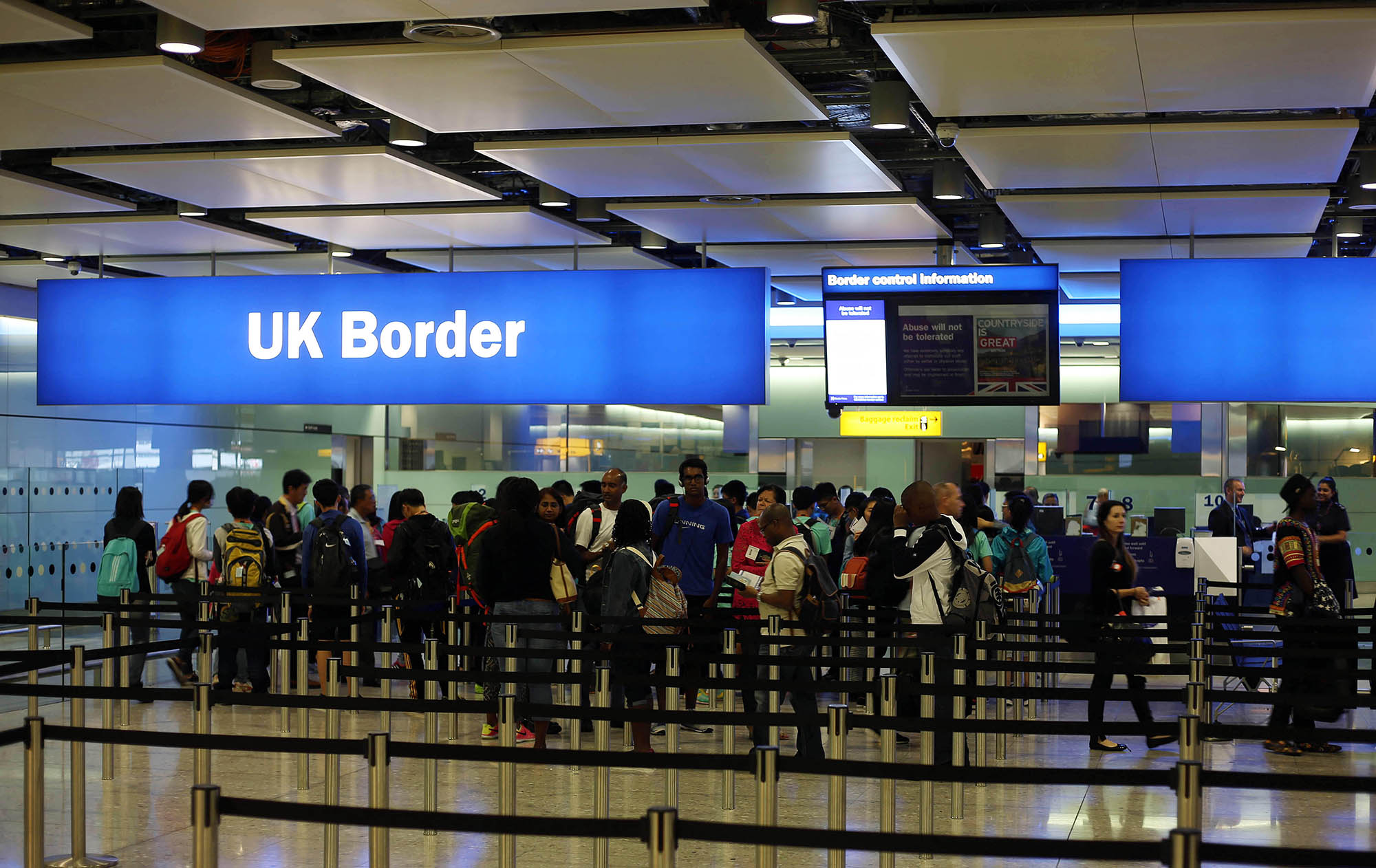Interest Rates Rise, NHS Nurses Strike Begins, Liquid Rule On Flights To Be Dropped
Interest rates have now been raised nine consecutive times in a row (Alamy)
5 min read
The Bank of England has announced it is increasing the Bank Rate of inflation to 3.5 per cent from 3 per cent.
At a meeting on Wednesday, the Bank of England’s Monetary Policy Committee (MPC) voted to increase the Bank Rate by 0.5 percentage points.
Higher base interest rates will mean higher costs for borrowing, including mortgage repayments and credit card debt.
Interest rates have now been raised nine consecutive times, as the Bank attempts to tackle soaring inflation, which hit a 40-year high of 11.1 per cent in October.
Inflation fell slightly in November to 10.7 per cent, but is still way above the Bank’s target of 2.5 per cent.
The drop was largely driven by falling fuel prices, the ONS said, which rose by 17.2 per cent in November – down from 22.2 per cent in October.
Energy and food costs remained the main drivers of inflation, with food running at an annual rate of 16.4 per cent.
The base rate of interest was last raised on 3 November from 2.25 per cent to 3 per cent, the largest single hike since 1989.
The Bank of England warned last month that the UK was set to fall into its longest recession since records began, during which unemployment is expected to nearly double.
Union says health secretary has “turned his back” on nurses
 (Alamy)
(Alamy)
Pat Cullen, general secretary of the Royal College of Nurses (RCN), has said the union’s historic strike is a “tragic day” for the NHS.
She accused the health secretary, Steve Barclay, of leaving nurses “out in the cold” for refusing to discuss pay in talks with the RCN.
"The public absolutely understand why nurses are doing this today,” she told Sky News.
"Standing out in the cold this morning – put out in the cold by this government, with the door shut on them.
"This is a tragic day for nursing, it’s a tragic day for the NHS."
She added that there was “a lot of optimism” when she met with Barclay last week to discuss the upcoming nurses strike, but that the health secretary “wanted to talk about anything but pay”.
"There wasn’t a single additional penny put on the table for our nursing staff. He closed his books and he walked away, and he turned his back on nursing and he turned his back on patients."
The government has repeatedly insisted that it is following the guidance of the independent pay review body when it comes to nurses’ pay.
But Cullen dismissed these comments, telling BBC Breakfast that the body was “set up by government, paid by government, appointed by government and the parameters of the review are set by government, so there’s nothing independent about it”.
“There’s nothing independent about the independent pay review body – it might be accepted by government, it’s not accepted by the Royal College of Nursing,” she said.
Health minister admits it is “inevitable” that patients will suffer during strike action
 (Alamy)
(Alamy)
Health minister Maria Caulfield has said it is "inevitable" that patient care will suffer during the nurses strike.
Asked if the walkout will affect patient care, Caulfield told Sky News it was “an inevitable action of strike action”.
“That's why it is with regret that we see that the RCN are going out on action today,” she said.
"We absolutely understand the issues around pay, but the secretary of state did meet with the RCN earlier this week to talk about some of the other factors that make life very difficult for nurses on the front line."
Caulfield reiterated that the government had accepted the pay review body’s recommendations, and claimed it was “unrealistic” to give nurses a 19 per cent pay rise.
On Sunday, the medical director of the NHS told the BBC that the public should expect significant disruption to services during the strike.
He did not rule out the possibility that people could die unnecessarily due to the disruption, claiming that “nobody in the NHS wants that”.
“We've been working hard and talking with union representatives at the national level and local level to ensure those emergency services remain open, and also other key services.”
Government to scrap 100ml limits on airport hand luggage
 (Alamy)
(Alamy)
The government has implemented a massive shake-up of airport security rules, with restrictions on liquids and large electricals in hand luggage to be scrapped by June 2024.
Airports have two years to upgrade their screening technology, which Transport Secretary Mark Harper said would improve the "passenger experience, and most importantly detecting potential threats".
The new technology will replace existing x-ray scanners with new equipment which more closely resembles CT scanners used in hospitals, and such machines have already been installed at London's Heathrow Airport.
Travellers are currently limited to carrying 100ml bottles of liquid in hand luggage, and are required to remove large electronic devices such as laptops and tablets when passing through security.
The measures have been in place since 2006, but former prime minister Boris Johnson had previously pledged to scrap the measures by the end of 2022.
“The tiny toiletry has become a staple of airport security checkpoints, but that’s all set to change. I’m streamlining cabin bag rules at airports while enhancing security,” Harper said.
He added that passengers “must continue following the existing rules and check before travelling” as the new technology would take two years “to be fully implemented”.
Christopher Snelling, Policy Director at The Airport Operators Association (AOA), said the move “will provide a great step forward for UK air travel, matching the best in class around the world”.
